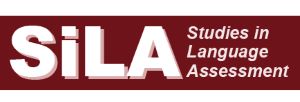Phantom young English language learners: The shadowy presence of second language proficiency in (English medium) early childhood assessment
Denise Angelo & Catherine Hudson, Australian National University
|
https://doi.org/10.58379/KCDT5699
|
Volume 12, Issue 2, 2023
|
Abstract: This paper examines how English language learners (ELLs) remain shadowy figures in the Australian Early Development Census (AEDC), a national early childhood development assessment, which since 2009 has been completed triennially by classroom teachers in all Australian jurisdictions for every child in their first year of schooling. It shows how ELLs elude clear identification and appropriate English as a Second/Additional language (L2) assessment because of the fundamentally monolingual conceptualisation of this tool. The AEDC provides the only set of education data at the national level for this young age group and has consequently become a “go to” measure for policy initiatives. However, young children in contemporary Australia are linguistically diverse and so semi-recognition of ELLs in an English only assessment tool is very concerning. Neither the definition of ELLs nor the wording of key assessment items gives classroom teachers sufficient guidance on how to respond for ELLs. The resulting AEDC data and associated reports easily drift towards deficit misinterpretations as natural L2 proficiency levels are muddled with global childhood development in communication and cognition. The paper makes recommendations for improving the quality and accuracy of AEDC data outputs for ELLs and for using the data for policy purposes.
Key words: early childhood education, standardised assessment, young English language learners, English language proficiency, school data
